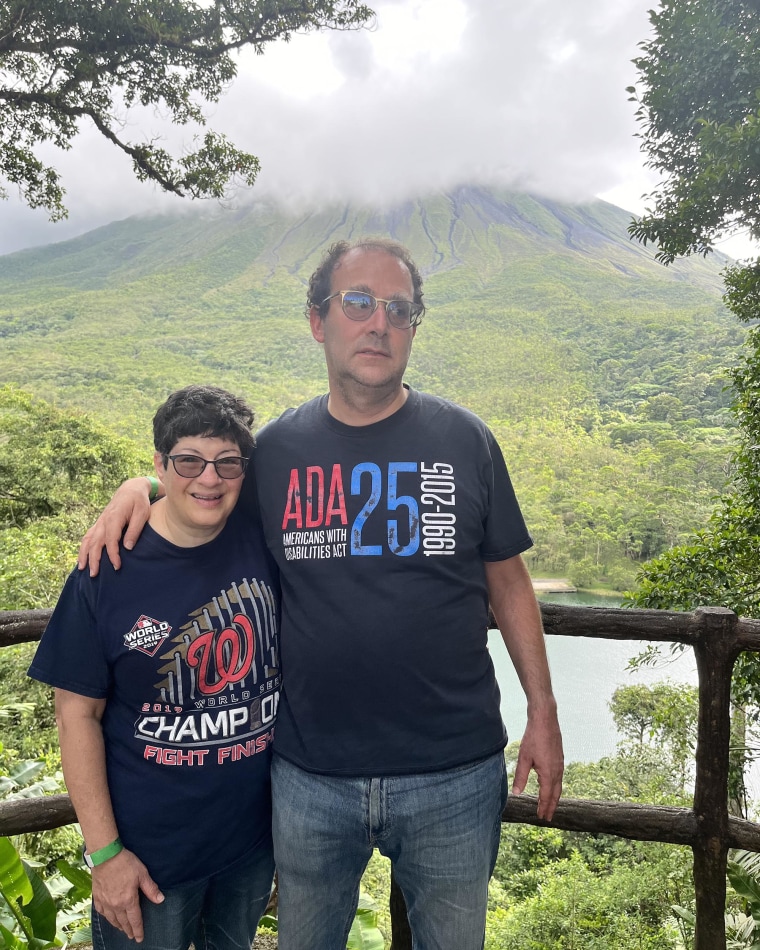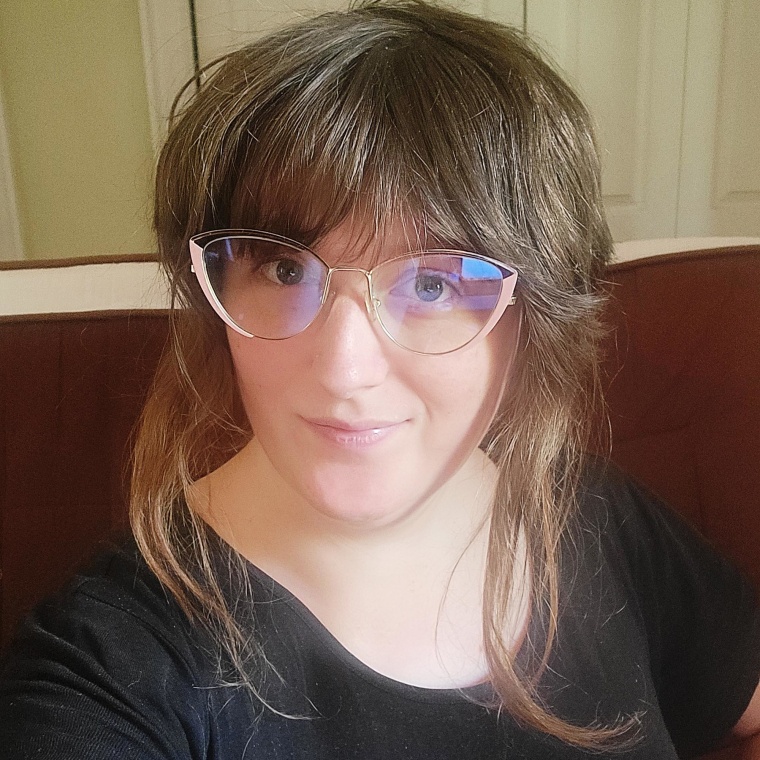In just two months on the job, Health Secretary Robert F. Kennedy Jr. has raised the profile of autism more than any recent public official.
Autism advocacy groups typically welcome more attention to their cause. But many autistic people say Kennedy is exploiting their community — and perpetuating harmful stereotypes — as part of his decadeslong campaign against vaccines, even as the Trump administration threatens to eliminate services that help people with autism reach their full potential.
At an April press conference on autism rates among school-age kids, Kennedy described autism as an epidemic and a “tragedy” that “destroys families.”
“These are kids who will never pay taxes, they’ll never hold a job, they’ll never play baseball, they’ll never write a poem, they’ll never go out on a date. Many of them will never use the toilet unassisted,” Kennedy said.
In response, 15 advocacy groups issued a joint statement calling for autistic people to be treated with respect and support. The groups said they are “deeply concerned by growing public rhetoric and policy decisions” that fail to “reflect the inherent value, rights and diverse needs of autistic people.”
Zoe Gross, director of advocacy for the Autistic Self Advocacy Network, was one of many people to speak out. Gross and her brother have autism.
“It was a challenge for our parents, but our family wasn’t destroyed,” Gross said.
Ari Ne’eman, an assistant professor of health policy and management at the Harvard T.H. Chan School of Public Health, said he sees Kennedy’s disparaging remarks as “part of the long and unfortunate history of fearmongering in the autism world.”
“There’s an unscrupulous industry of alternative medicine providers who exploit families by charging them tens of thousands of dollars to ‘recover’ people with autism,” said Ne’eman, who has autism. “The way that industry works is by terrifying families.”
Even among people with intellectual disabilities — a category that includes 40% of people with autism — 1 in 5 held a paid job in the community in 2020.
Kennedy later said he was referring to people with “profound autism,” including those without access to speech. Research suggests 10% to 27% of autistic people are nonverbal or have other significant needs, a rate that has remained relatively consistent since 2000.
Philip Weintraub, 53, didn’t speak a word until he was 5 years old.
But he received speech therapy throughout elementary school. Occupational therapy improved his motor skills, which allowed him to play soccer and basketball in middle school and high school, as well as softball as an adult.
After high school, he began volunteering for the Bill Clinton campaign and later worked for the White House. Weintraub now works at the Universal Services Administrative Company, which connects people to broadband services. When he returned to school to become certified in computer science, his school provided someone to take notes and gave him extra time on a test.

He and his wife, Liz, who has cerebral palsy, live in the Washington, D.C., area. Weintraub noted that they have gone on many dates.
“We are coming up on our 20th anniversary,” he said.
Many autistic people and their advocates say Kennedy’s remarks on autism perpetuate stigmas about the disorder, a neurodevelopmental disability in which people experience difficulties with social interaction or communication and often have restricted interests or repetitive behaviors.
Symptoms can vary dramatically from person to person, however, and some people with autism need higher levels of support than others.
Alison Singer, president of the Autism Science Foundation, said she welcomed Kennedy’s focus on autistic people who need more intensive support. However, she objects to the suggestion that the lives of some autistic people have little worth.
Kennedy “made it sound like these individuals’ lives had no value if they couldn’t pay taxes,” Singer said. “That they couldn’t love and weren’t worthy of love. My daughter has profound autism and so does my older brother. They both live lives of meaning and dignity.”
Although attitudes toward autism have changed significantly in recent decades, Kennedy doesn’t seem to have kept up, said David Mandell, associate director of the Children’s Hospital of Philadelphia’s Center for Autism Research.
Kennedy’s comments about autism echo the language of some autism organizations from 20 years ago, when advocates often spoke of “curing” the condition, Mandell said.
In a written statement to NBC News, an HHS spokesperson said, “Secretary Kennedy remains committed to working toward a society where people with autism have access to meaningful opportunities, appropriate supports and the full respect and recognition they deserve. His statements emphasized the need for increased research into environmental factors contributing to the rise in autism diagnoses, not to stigmatize individuals with autism or their families. HHS supports ongoing collaboration and research to both identify the causes of autism and provide the best possible care and management strategies for those impacted.”
Where were the autistic people?
According to the Centers for Disease Control and Prevention, there are more than 5 million adults with autism in the United States.
When talking about autism, Kennedy refers to children but doesn’t mention of the needs of autistic adults, insisting that he’s never seen an adult his age with symptoms of autism.
Kennedy is “not just excluding the voices of autistic adults from the conversation, but excluding the fact of our existence,” Ne’eman said.
Kennedy has also said he didn’t know anyone with autism when he was growing up in the 1950s and 1960s, before some modern vaccines were available.
There’s a reason why people were autism were rarely seen at that time, Mandell said. Like others with intellectual or physical disabilities, they were often institutionalized, often living in appalling conditions that shortened their lives.
More than a century ago, when doctors first described autism, they saw it as a symptom of childhood schizophrenia. In the 1940s, doctors blamed the condition on “refrigerator mothers” who weren’t warm enough to their children.
Kristyn Roth, chief marketing officer of the Autism Society of America, said Kennedy’s claims about autistic children’s limited potential echo the warnings that doctors used during the mid-20th century to persuade parents to institutionalize their children, rather than raise them at home.
Children with autism weren’t afforded the legal right to a free public education until 1975. Children with developmental delays can receive early intervention services until age 3, then transition into special education, if needed.
Today, advocacy groups say it’s important to tell parents of newly diagnosed children about the many possibilities open to their kids.
“You don’t know what’s possible for your kid,” said Gross. “No one knows what’s possible for your kid when they’re 3 years old,” Gross said.
Cutting support for people with autism
Part of Kennedy’s plan to “Make America Healthy Again” includes “streamlining” and “restructuring” federal health agencies in ways that could hurt people with autism, Roth said.
One of the most significant potential losses is the proposed dismantling of the Administration for Community Living, or ACL, which is best known for the Meals on Wheels program that delivers food to people’s homes. The ACL also protects the civil rights of older adults and people with disabilities — including those with autism — and helps them live independently, rather than in institutions.
According to the Trump administration, the agency’s “critical programs” — but not all programs — will be split across other departments. According to news reports, half of the ACL’s staff has been fired.
Proposals by Republicans in Congress to cut Medicaid by hundreds of billions of dollars over the next decade to pay for Trump’s budget priorities could deal a devastating blow to people with autism and their families, Roth said.
Many children and adults with autism receive their health care through Medicaid, which covers people with disabilities or low incomes. Health insurance is critical for people with autism, who tend to have more serious medical needs than others. Up to half of those with autism have seizures, which can be life-threatening.
Medicaid also pays for screening, diagnosis, acute medical care, physical therapy, occupational therapy and one-to-one aides for people who need them, among other services, Mandell said.
Some states have received waivers to provide additional services through Medicaid, such as respite care for caregivers, a service that has been shown to reduce institutionalization.
Medicaid is “a literally lifesaving program for so many people in our community,” Roth said.
The Autism Society of America, which co-signed a letter to congressional leaders asking them to save the ACL, said the level of federal cost-cutting is leading to “the decimation of programs that directly serve and support the disability community, including those with autism,” according to a statement from the group.
If the federal government doesn’t fund services that help people with autism live at home, for example, they could end up living in institutions, which are much more expensive, Mandell said.
In an online statement, the Autism Self Advocacy Network said Kennedy has not consulted autism advocacy groups about any of the plans that affect their community.
Although Kennedy has pledged a “massive testing and research effort” to find the causes of autism, Ne’eman said research dollars would be better spent investigating ways to support autistic people in their daily lives, such as addressing barriers to jobs and education.
“The false idea that autism is caused by an ‘injury,’ by something external going wrong, makes people more afraid of autism and of autistics,” the Autistic Self Advocacy Network wrote in a statement in April. “So does the idea that it is better for a child to die of a vaccine-preventable disease than to live as an autistic person.”
Concerns about cutbacks to education
Trump also has vowed to eliminate the Department of Education, which oversees special education services and enforces the law that guarantees children with disabilities — including those with autism — receive a free public education in the least restrictive environment. The White House has promised that services for children with disabilities will be “preserved in full and redistributed to various other agencies and departments,” but many autism advocates worry that key services will be lost in the shuffle, making it harder for students to receive individual education programs and special instruction in school, as well as accommodations that help meet their needs.
Twenty-two percent of families of children with disabilities experience financial hardship, such as difficulty paying a medical bill or going without care due to cost, according to a study published in JAMA on April 24. That rate is nearly twice as high as in families without children with disabilities.
“I have not heard Kennedy say one word about supports,” Mandell said. “I would love to change the conversation to talk about what we should be doing to support these individuals.”
Efforts to help autistic people are succeeding
The report from the CDC that triggered Kennedy’s recent briefing shows that increased efforts to screen young children for autism have led to an increase in the number of children diagnosed with the condition.
Kennedy rejects the idea that increased awareness and screening explains the growth in autism diagnoses.
Jemma Bat-Anat Page, 29, said she would not have been diagnosed with autism if she hadn’t sought out testing two years ago.

Page, who works in theater in Cincinnati, paid for the tests using health insurance from her employer. Page said she has been uncomfortable making eye contact since she was a child and she sometimes got in trouble for not being able to control the volume of her voice. She decided to be tested, not for accommodations or services, but simply to better understand herself.
Page and her partner, who has attention deficit hyperactivity disorder, consider themselves “neurodiverse.”
She also likes the increasingly popular term “neurospicy.”
Ne’eman believes the actual number of people with autism may not have changed as much as statistics suggest.
“Many people who today get an autism diagnosis would have, in a prior generation, gotten a diagnosis of intellectual disability, mental illness or no diagnosis at all,” Ne’eman said.
